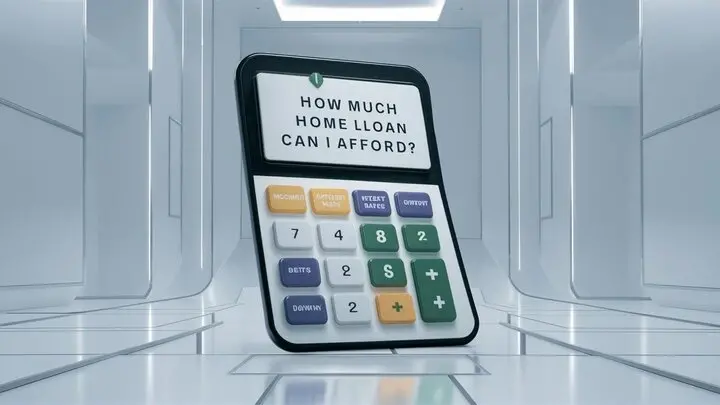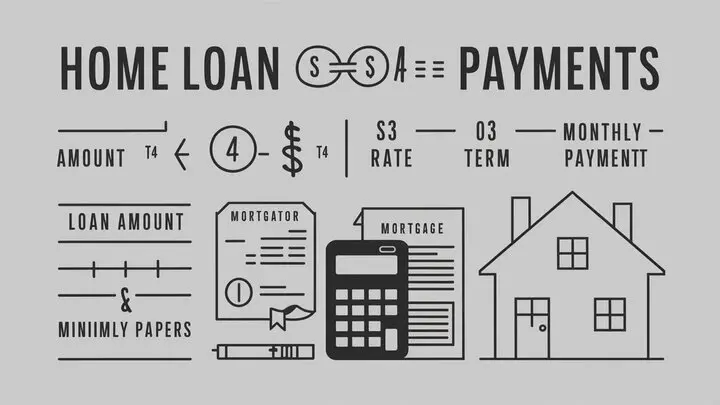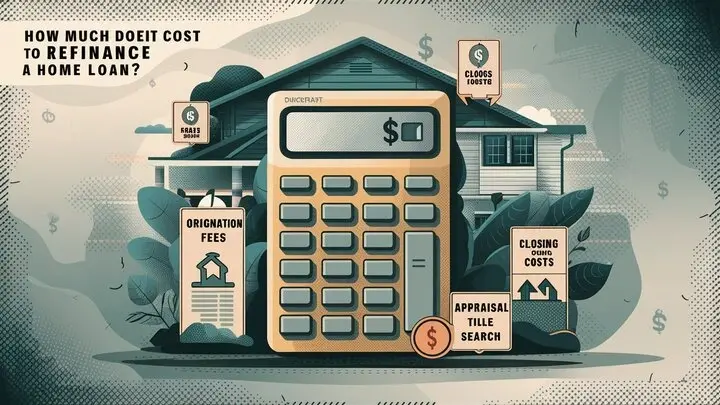-
Posted on: 21 Dec 2022

-
Dreaming of owning a home but worried about your less-than-perfect credit score? You're not alone. Many aspiring homeowners face the challenge of securing a mortgage with bad credit. While it can be more difficult, it's certainly not impossible. This comprehensive guide will walk you through everything you need to know about obtaining a home loan with bad credit, including understanding the challenges, exploring your options, and taking steps to improve your chances of approval.
Understanding Bad Credit and Home Loans
First, let's define what "bad credit" means in the context of home loans. Lenders typically use credit scores to assess your creditworthiness. While the specific score ranges vary slightly, here's a general guideline:
- Excellent Credit: 750+
- Good Credit: 700-749
- Fair Credit: 650-699
- Poor Credit: 550-649
- Very Poor Credit: Below 550
If your credit score falls within the "poor" or "very poor" range, you'll likely face higher interest rates, stricter loan terms, and a potentially smaller loan amount. Lenders view you as a higher risk because your credit history suggests a greater likelihood of defaulting on the loan.
Why is Credit Score Important for Home Loans?
Your credit score is a numerical representation of your credit history, reflecting how reliably you've managed debt in the past. Lenders use this score to predict your future repayment behavior. A low credit score indicates a history of missed payments, high credit utilization, or other negative credit events, which raises concerns for lenders.
The Impact of Bad Credit on Your Home Loan
Having bad credit can significantly impact your home loan in several ways:
- Higher Interest Rates: This is the most common and significant impact. Lenders charge higher interest rates to compensate for the increased risk. Even a small difference in interest rate can translate to thousands of dollars over the life of the loan.
- Smaller Loan Amount: Lenders may be hesitant to approve a large loan amount if they perceive you as a high-risk borrower.
- Stricter Loan Terms: You might face stricter requirements regarding down payments, loan repayment periods, and other loan terms.
- Difficulty Getting Approved: Some lenders may simply deny your application altogether if your credit score is too low.
Exploring Home Loan Options for Bad Credit
Despite the challenges, several loan options are available for individuals with bad credit. Understanding these options is crucial for making an informed decision.
1. FHA Loans
The Federal Housing Administration (FHA) offers loans specifically designed for borrowers with lower credit scores and smaller down payments. FHA loans are insured by the government, which reduces the risk for lenders and allows them to offer more lenient terms.
Key Features of FHA Loans for Bad Credit:
- Lower Credit Score Requirements: You may qualify for an FHA loan with a credit score as low as 500, although a higher down payment (10%) may be required. A score of 580 or higher typically allows for a 3.5% down payment.
- Lower Down Payment: As mentioned above, the down payment can be as low as 3.5% for borrowers with a credit score of 580 or higher.
- Debt-to-Income Ratio (DTI): FHA loans are more forgiving when it comes to DTI, which is the percentage of your gross monthly income that goes towards debt payments.
Important Note: FHA loans require mortgage insurance, which includes an upfront premium and an annual premium that's paid monthly. This adds to the overall cost of the loan.
2. VA Loans
VA loans are guaranteed by the Department of Veterans Affairs and are available to eligible veterans, active-duty service members, and surviving spouses. VA loans are known for their favorable terms, including no down payment requirement and no private mortgage insurance (PMI).
Key Features of VA Loans for Bad Credit:
- No Down Payment: One of the biggest advantages of VA loans is the lack of a down payment requirement.
- No Private Mortgage Insurance (PMI): Unlike conventional loans, VA loans do not require PMI.
- Competitive Interest Rates: VA loans often have lower interest rates than other types of loans.
- More Forgiving Credit Requirements: While there's no minimum credit score mandated by the VA, lenders typically look for a score of at least 620. However, they are often more flexible than with conventional loans.
Important Note: VA loans require a funding fee, which is a percentage of the loan amount that helps cover the cost of the program. This fee can be financed into the loan.
3. USDA Loans
USDA loans are offered by the United States Department of Agriculture to help low- and moderate-income individuals and families purchase homes in rural areas. USDA loans are known for their low or no down payment options.
Key Features of USDA Loans for Bad Credit:
- No Down Payment: USDA loans typically do not require a down payment.
- Low Interest Rates: USDA loans often have competitive interest rates.
- Income Limits: USDA loans have income limits that vary by location.
- Location Restrictions: USDA loans are only available for properties located in designated rural areas.
- Credit Score Requirements: While guidelines can vary by lender, a credit score of 620 or higher is generally preferred. Lower scores might be considered with strong compensating factors.
Important Note: USDA loans require both an upfront guarantee fee and an annual guarantee fee, similar to mortgage insurance premiums.
4. Non-QM Loans
Non-Qualified Mortgage (Non-QM) loans are mortgages that don't meet the strict requirements of a Qualified Mortgage (QM). This allows lenders more flexibility in approving borrowers who might not qualify for traditional loans, including those with bad credit.
Key Features of Non-QM Loans for Bad Credit:
- More Flexible Requirements: Non-QM loans are designed for borrowers who don't fit the traditional mortgage mold.
- Higher Interest Rates: Due to the increased risk for lenders, Non-QM loans typically have higher interest rates and fees.
- Alternative Documentation: Lenders may consider alternative documentation, such as bank statements or asset statements, to verify income.
Important Note: Non-QM loans are generally more expensive than traditional loans and should be carefully considered.
5. Subprime Loans
While less common than in the past, subprime loans are another option for borrowers with bad credit. These loans are specifically designed for individuals with a higher risk of default.
Key Features of Subprime Loans for Bad Credit:
- Higher Interest Rates and Fees: Subprime loans typically come with significantly higher interest rates and fees to compensate lenders for the increased risk.
- Greater Scrutiny: Lenders will carefully scrutinize your application and financial situation.
Important Note: Subprime loans can be very risky and should be approached with caution. It's crucial to understand the terms and conditions thoroughly before committing to a subprime loan.
Strategies to Improve Your Chances of Home Loan Approval with Bad Credit
Even with specialized loan programs available, improving your financial situation and credit score can significantly increase your chances of approval and secure more favorable loan terms. Here are some strategies to consider:
1. Improve Your Credit Score
This is the most important step. Here's how to improve your credit score:
- Pay Bills on Time: Payment history is the most significant factor in your credit score. Set up automatic payments to avoid missing deadlines.
- Reduce Credit Card Debt: Aim to keep your credit utilization ratio (the amount of credit you're using compared to your total credit limit) below 30%.
- Dispute Errors on Your Credit Report: Review your credit report for inaccuracies and dispute any errors you find. You can obtain free credit reports from Equifax, Experian, and TransUnion at AnnualCreditReport.com.
- Become an Authorized User: If you have a trusted friend or family member with good credit, ask them to add you as an authorized user on their credit card.
- Consider a Secured Credit Card: A secured credit card requires a cash deposit as collateral, making it easier to get approved, even with bad credit.
2. Increase Your Down Payment
A larger down payment demonstrates to lenders that you have more "skin in the game" and are less likely to default on the loan. It also reduces the loan-to-value ratio (LTV), which is the percentage of the property's value that you're borrowing.
3. Reduce Your Debt-to-Income Ratio (DTI)
Lenders prefer borrowers with lower DTIs. Focus on paying down existing debt, such as credit card balances and student loans, to lower your DTI. Also, avoid taking on new debt before applying for a mortgage.
4. Save for Closing Costs
Closing costs can be significant and include fees for appraisal, title insurance, loan origination, and other services. Be prepared to cover these costs out of pocket.
5. Get Pre-Approved for a Mortgage
Getting pre-approved for a mortgage gives you a clear understanding of how much you can borrow and what interest rates you can expect. It also strengthens your offer when you find a home you want to buy.
6. Work with a Mortgage Broker
A mortgage broker can help you navigate the complex world of home loans and find lenders who specialize in working with borrowers with bad credit. They have access to a wide range of loan products and can help you compare offers to find the best deal.
7. Consider Credit Counseling
A credit counselor can provide guidance on managing your debt, improving your credit score, and developing a budget. They can also help you explore debt management plans and other options for getting your finances back on track.
Finding the Right Lender
Not all lenders are created equal. Some lenders specialize in working with borrowers with bad credit, while others focus on borrowers with excellent credit. It's essential to shop around and compare offers from multiple lenders.
Factors to Consider When Choosing a Lender:
- Interest Rates: Compare interest rates from different lenders to find the lowest rate possible. Even a small difference in interest rate can save you thousands of dollars over the life of the loan.
- Fees: Ask about all fees associated with the loan, including origination fees, appraisal fees, and closing costs.
- Loan Terms: Review the loan terms carefully, including the loan repayment period, prepayment penalties, and other conditions.
- Customer Service: Choose a lender that provides excellent customer service and is responsive to your questions and concerns.
- Reputation: Check the lender's reputation with the Better Business Bureau (BBB) and read online reviews.
The Home Buying Process with Bad Credit
The home buying process is similar whether you have good credit or bad credit, but there are a few additional considerations when you have a lower credit score:
- Get Your Finances in Order: Review your credit report, create a budget, and start saving for a down payment and closing costs.
- Get Pre-Approved: Obtain pre-approval from a lender to determine how much you can borrow.
- Find a Real Estate Agent: Work with a real estate agent who is experienced in working with buyers with bad credit.
- Search for a Home: Find a home that meets your needs and budget.
- Make an Offer: Submit an offer to the seller.
- Negotiate: Negotiate the terms of the offer with the seller.
- Get an Appraisal and Home Inspection: Schedule an appraisal and home inspection to ensure the property is worth the purchase price and is in good condition.
- Secure Financing: Finalize your loan application and provide any required documentation to the lender.
- Close the Deal: Attend the closing and sign the loan documents.
Common Mistakes to Avoid
- Ignoring Your Credit Report: Regularly review your credit report for errors and inaccuracies.
- Taking on New Debt Before Applying: Avoid taking on new debt, as this can negatively impact your credit score and DTI.
- Applying for Too Many Loans at Once: Multiple credit inquiries in a short period can lower your credit score.
- Choosing the First Loan Offer You Receive: Shop around and compare offers from multiple lenders.
- Underestimating Closing Costs: Be prepared for closing costs, which can add up to several thousand dollars.
- Not Seeking Professional Advice: Consult with a mortgage broker or credit counselor for guidance and support.








